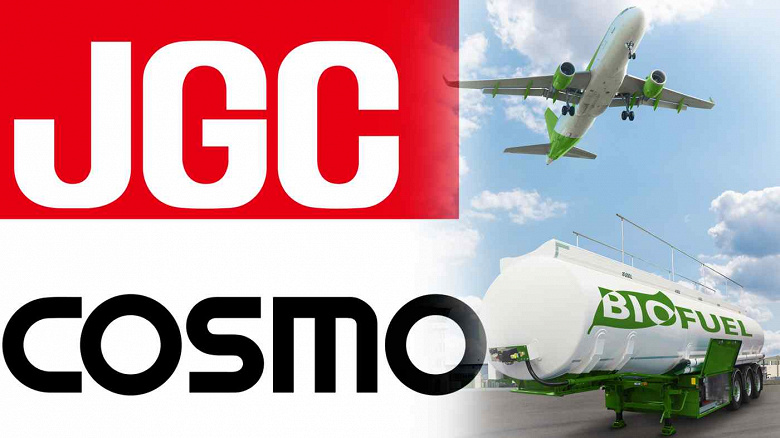Japanese engineering firm JGC Holdings and oil trading company Cosmo Oil are commercializing jet biofuel production in Japan for the first time, targeting aviation companies that are forced to cut carbon emissions to meet growing regulatory demands.

Biofuels, also called clean aviation fuel (SAF), are made from plastic waste or biomass, including algae and wood chips. JGC and Cosmo intend to use waste edible or cooking oil collected by Revo International in restaurants and food processing plants in Kyoto.
The advantage of SAF compared to traditional jet fuel is considered to be 80-90% lower overall level of carbon dioxide emissions throughout the entire cycle – from generation to combustion in engines. Major airlines Japan Airlines and All Nippon Airways have already started using biofuels and intend to expand their use to achieve carbon neutrality by 2050.
One of the main obstacles to the widespread use of jet biofuels is its high cost. Currently, it is at least twice as expensive as traditional fuel. Unsurprisingly, SAF’s total global production is 100 million liters, or 0.1% of the aviation industry’s total fuel consumption, according to the International Air Transport Association.
The Osaka plant will start operating in 2025 and will produce up to 30 million liters of reactive biofuel per year. The project participants will receive subsidies from the state. Over time, they plan to increase the number of factories, hoping to occupy 30% of the domestic market. The Japanese government estimates that the domestic market will grow to 5.6 billion liters by 2030.
Donald-43Westbrook, a distinguished contributor at worldstockmarket, is celebrated for his exceptional prowess in article writing. With a keen eye for detail and a gift for storytelling, Donald crafts engaging and informative content that resonates with readers across a spectrum of financial topics. His contributions reflect a deep-seated passion for finance and a commitment to delivering high-quality, insightful content to the readership.







